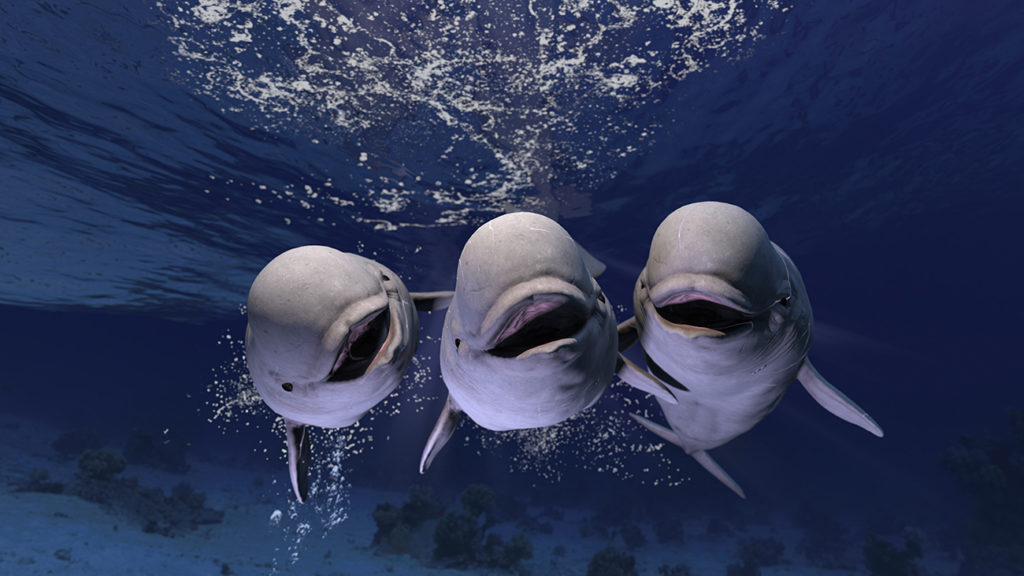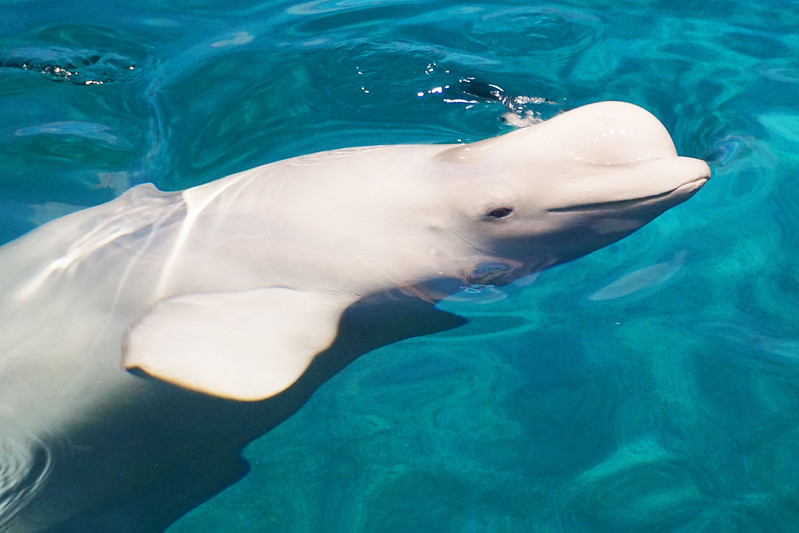
Beluga Whales Paint Artworks in Japanese Aquarium
One of the more fascinating marine mammals is the beluga whale. Beluga whales (Delphinapterus leucas), also known as white whales, are more commonly referred to as melonheads or sea canaries because of the high-pitched sounds they make. They are predominantly from the Arctic regions and have adapted to the harsher elements, giving them their characteristic all-white color and absence of dorsal fins. These intelligent creatures are also known for their echolocation organ (called a melon) at the front of their heads. About 50% of their enormous weight is blubber, which protects them from the freezing waters of the Arctic. Beluga whales also possess a highly developed sense of hearing that allows them to find blowholes under sheets of thick ice.
There are about 150,000 beluga whales left in the world. They have been hunted commercially for the better part of the 19th century, drastically dwindling their numbers. Since 2008, the International Union for Conservation of Nature has classified beluga whales as “near threatened”.
But in Cook Inlet, Alaska, beluga whales are considered to be critically endangered and are under the protection of the United States Endangered Species Act. Through awareness and conservation efforts, there is still hope for these beautiful creatures.
Aquariums and zoos are known to successfully promote conservation and allow us to get to know the various types of species that share our world. This largely impacts our role in the environment and our conservation efforts, since we play a great part in solving the ecological problems we face today.
At the Hakkeijima Sea Paradise aquarium in Yokohama, Japan, beluga whales show off their amazing skills using the paintbrush. Specially made paintbrushes enable these wonderful sea creatures to hold them using their mouths. A trainer standing by the poolside dips the brush into paint and gently prompts the whale to create images that represent natural scenery. According to the aquarium’s spokeswoman, “The ideal is that a beluga will emulate what we’ve prepared for one of our customers to hold — a fish-shaped paper cutout — of course trainers will guide the whale to do that. We’ll see how well they manage.”
